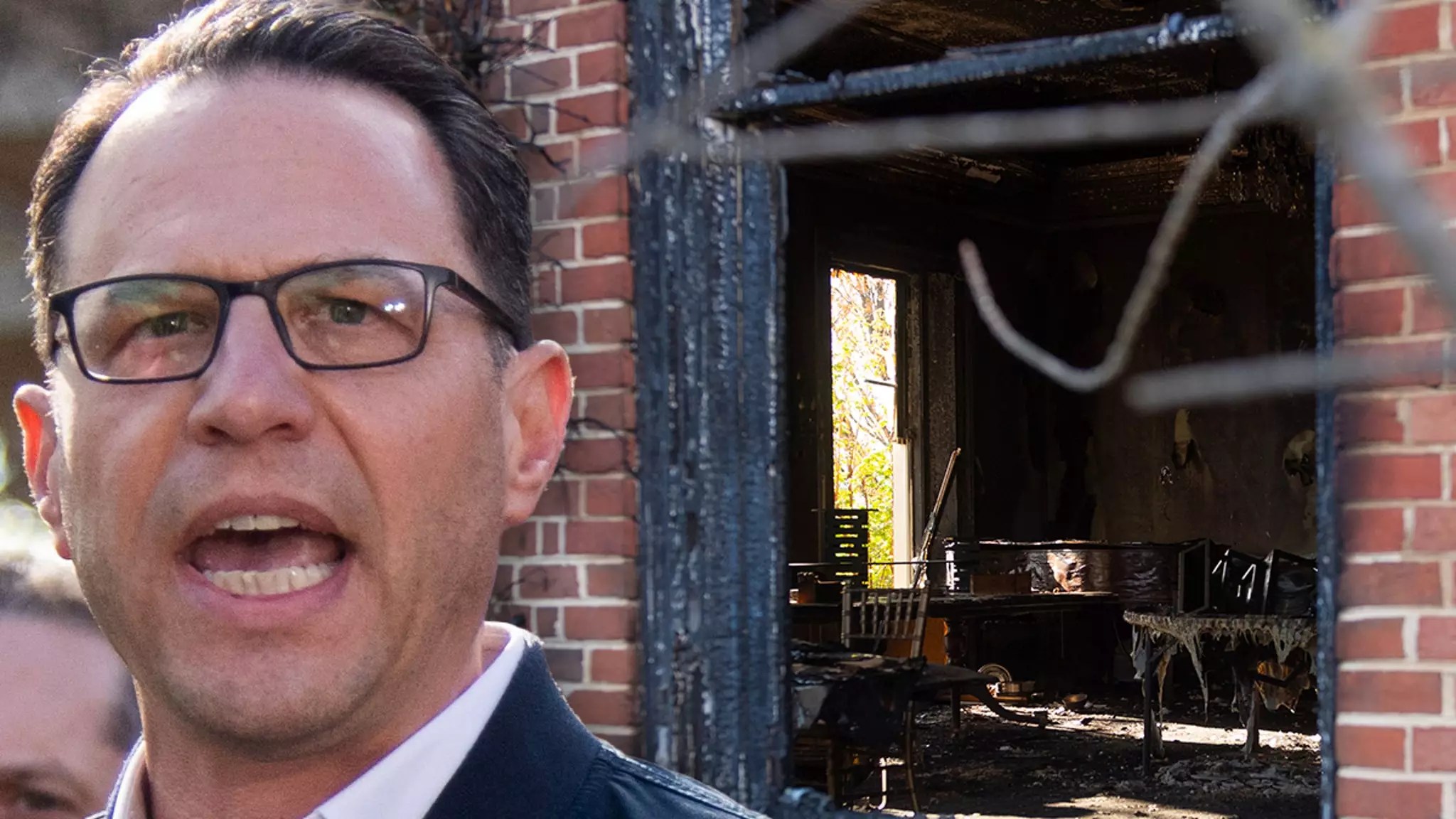In an unsettling twist of fate, Governor Josh Shapiro’s family faced a horrifying incident shortly after what should have been a joyous celebration of Passover. An arson attack on the Pennsylvania Governor’s Residence not only shattered a peaceful evening but also brought to light the broader issue of rising political violence. The suspect, 38-year-old Cody Balmer, allegedly executed a premeditated plan that culminated in a shocking assault on the very fabric of safety that public officials should expect.
A Reckless Assault on Community Safety
The alarming situation began when Balmer penetrated the estate’s security, breaching a barrier and introducing chaos into what should have been a sanctuary. The photographs that emerged from the aftermath depict a scene of devastation, with charred remnants of festivities left in disarray—ashes littering the floor and blackened furniture turned into haunting reminders of the event’s intensity. The Governor’s family, disrupted in their time of remembrance, had to evacuate their home under harrowing circumstances.
The sheer audacity and thoughtfulness behind the actions raise troubling questions about the mindset of individuals who resort to such violent expressions. The alleged use of a homemade incendiary device underscores the necessity for ongoing discussions about mental health, anger management, and the influences that drive individuals toward inherent aggression. It also emphasizes the need for fortified security measures around such essential institutions that symbolize democracy.
Broader Implications of Political Violence
The attack’s motives, largely speculative at this juncture, hint at a network of underlying hatred that seeks to disrupt social harmony. Governor Shapiro, noting the significance of the moment—celebrating Passover, a holiday steeped in themes of liberation—cited a refusal to be restrained by hostility. His statements resonate with a historical context where Jewish communities have faced persecution over centuries; thus, linking this assault to his identity as a Jewish leader intensifies the emotional weight of the incident.
Moreover, Shapiro’s subsequent remarks address not just the attack on his residence but also a larger societal cancer: political violence. His insistence that such acts are intolerable—irrespective of the perpetrator’s ideological leanings—raises critical alarm bells about the current collective climate. Leaders, whether they serve at state or national levels, must confront the dangerous rhetoric that enables such volatility.
The Path Forward: A Call to Action
As this incident unfolds, it serves as a crucial flashpoint for dialogues on security measures and community trust. What happened at the Governor’s Residence is not just an isolated incident; it is a reflection of a society grappling with intensifying political divisions and a growing trend of violence. Now is the time for communities to rally, casting aside divisive rhetoric in favor of understanding and unity.
In navigating the aftermath, local leaders must prioritize collaborative strategies to ensure safety while affirming the shared values that bind citizens together. By acknowledging the wounds of violence and striving to create environments of acceptance, there can be hope for healing, resilience, and a recommitment to safeguarding the essence of democracy.


Leave a Reply